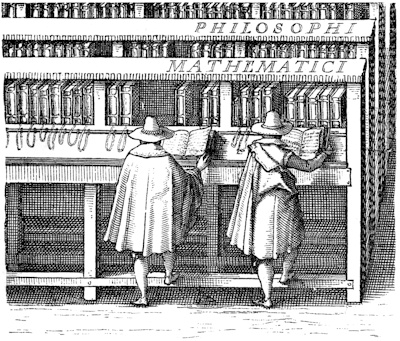Medieval Libraries and Manuscripts
It is very interesting to notice, as Order after[Pg 16] Order was founded, a steady development of feeling with regard to books, and an ever increasing care for their safe-keeping. S. Benedict had contented himself with general directions for study; the Cluniacs prescribe the selection of a special officer to take charge of the books, with an annual audit of them, and the assignment of a single volume to each brother; the Carthusians and the Cistercians provide for the loan of books to extraneous persons under certain conditions—a provision which the Benedictines in their turn adopted. Further, by the time that the Cluniac Customs were drawn up in the form in which they have come down to us, it is evident that the number of books exceeded the number of brethren; for both in them, and in the statutes which Lanfranc promulgated for the use of the English Benedictines in 1070, the keeper of the books is directed to bring all the books of the House into Chapter, after which the brethren, one by one, are to bring in the books they had borrowed[Pg 17] on the same day in the previous year. Some of the former class of books were probably service-books, but, after this deduction has been made, we may fairly conclude that by the end of the eleventh century Benedictine Houses possessed two sets of books: (1) those which were distributed among the brethren; (2) those which were kept in some safe place, probably the church, as part of the valuables of the House: or, to adopt modern phrases, they had a lending library and a library of reference. The Augustinians go a step farther than the Benedictines and the Orders derived from them, for they prescribe the kind of press in which the books are to be kept. Both they and the Premonstratensians permit their books to be lent on the receipt of a pledge of sufficient value. Lastly, the Friars, though they were established on the principle of holding no possessions of any kind, soon found that books were indispensable; that, in the words of a Norman Bishop, Claustrum sine armario, castrum sine armamentario. So,[Pg 18] by a strange irony, it came to pass that their libraries excelled those of most other Orders, as Richard de Bury testifies in the Philobiblon.
Whenever we turned aside to the cities and places where the Mendicants had their convents ... we found heaped up amidst the utmost poverty the utmost riches of wisdom....
These men are as ants ever preparing their meat in the summer, and ingenious bees continually fabricating cells of honey.... And to pay due regard to truth, although they lately at the eleventh hour have entered the Lord's vineyard ..., they have added more in this brief hour to the stock of the sacred books than all the other vine-dressers; following in the footsteps of Paul, the last to be called but the first in preaching, who spread the gospel of Christ more widely than all others.






